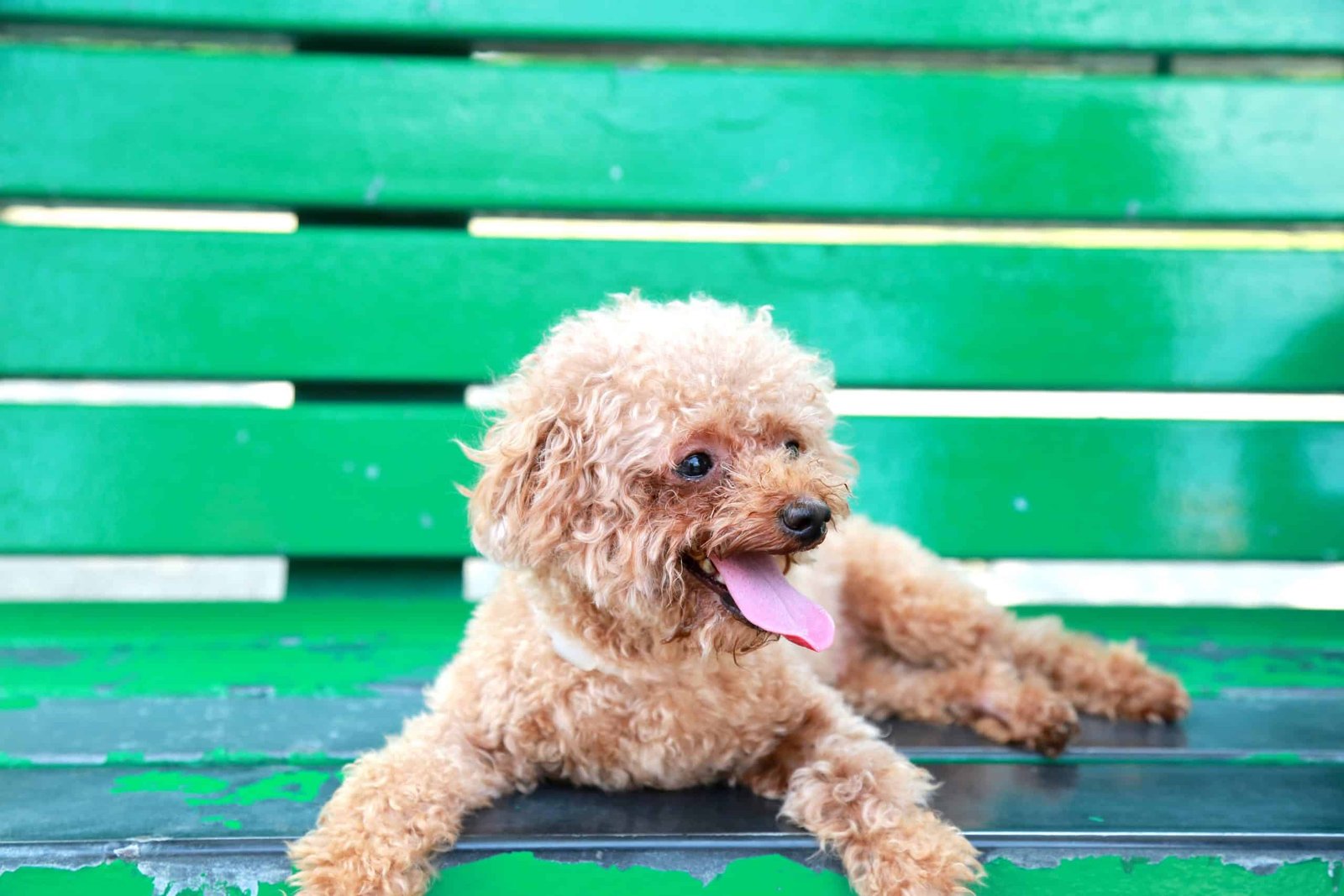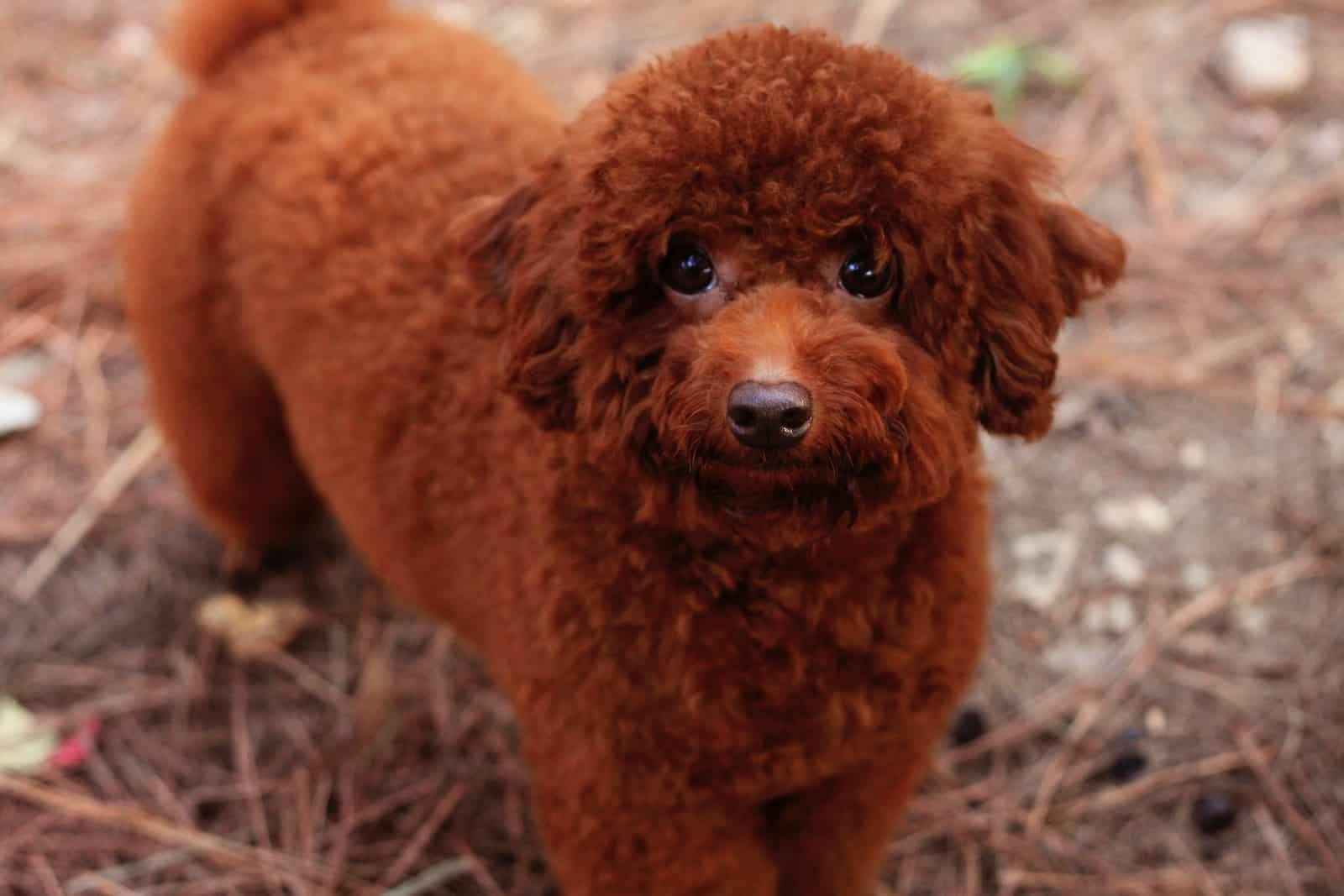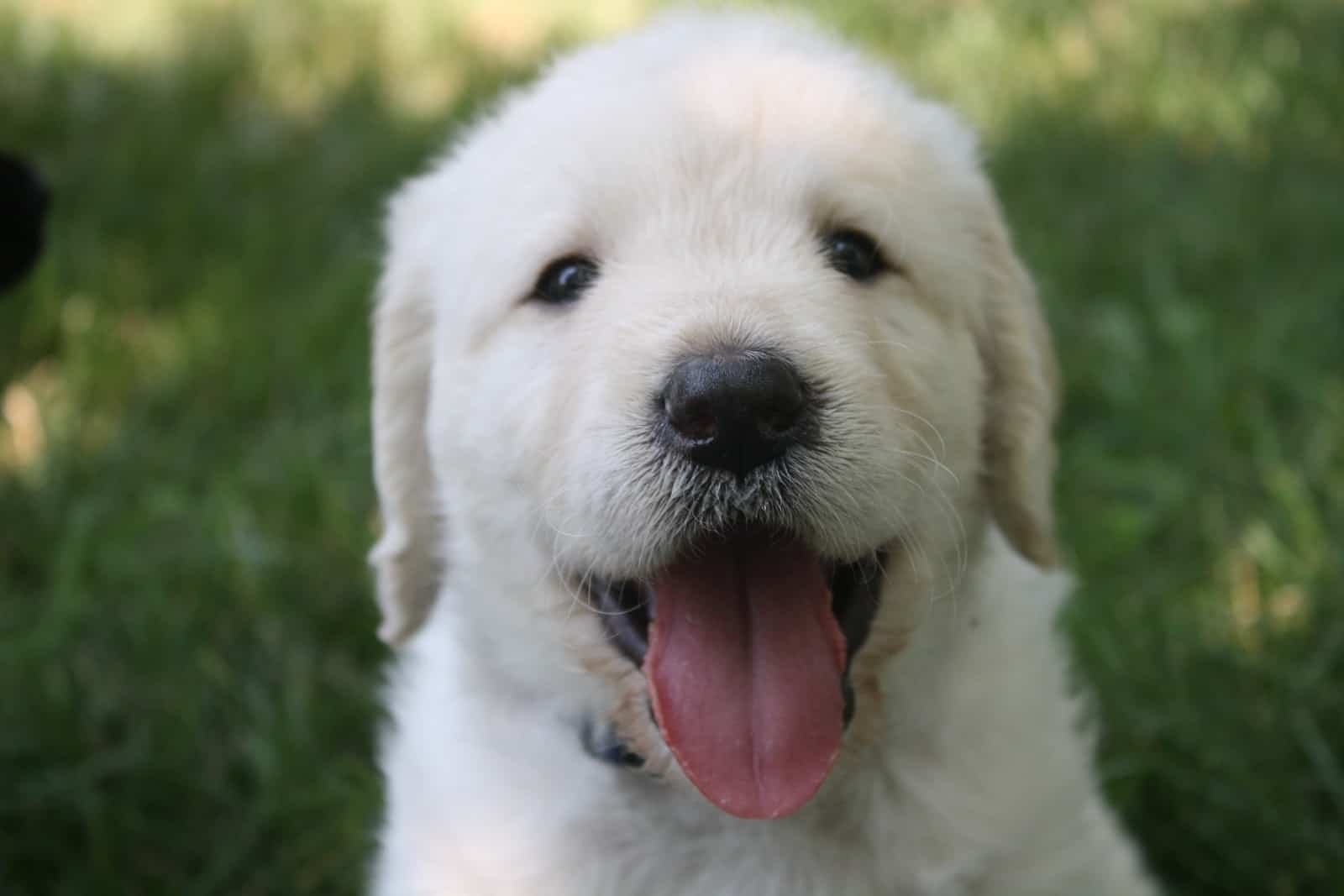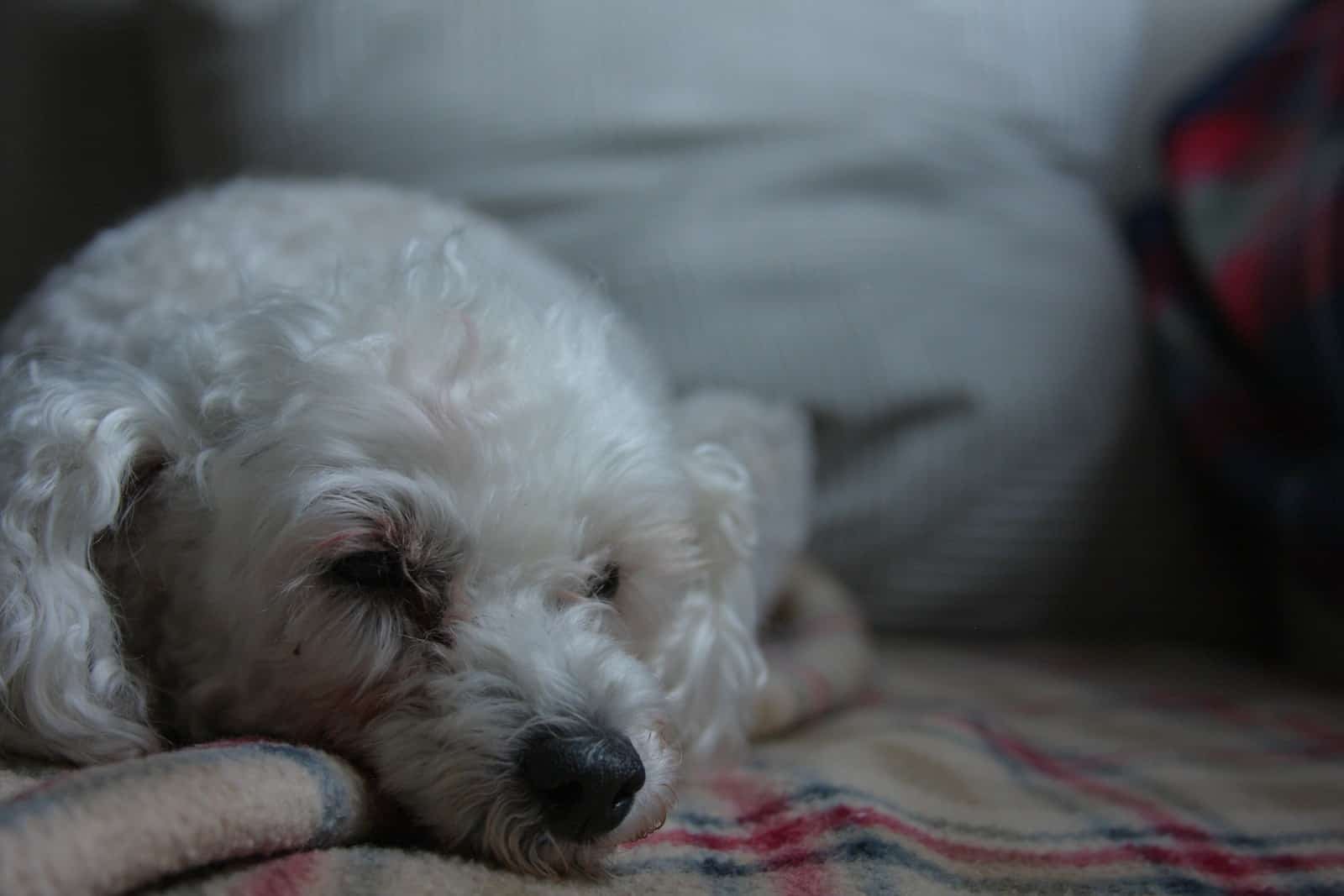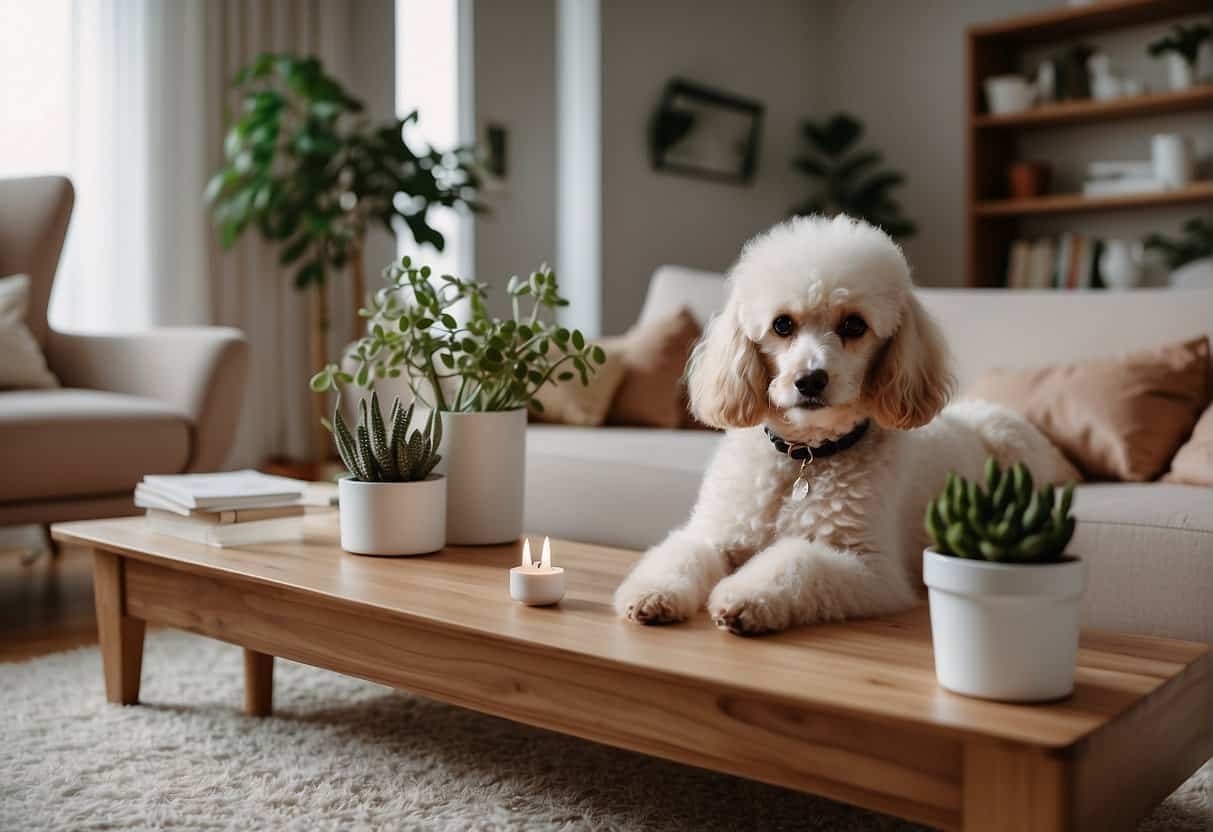
Are you thinking of getting a Toy Poodle? Then you’ll get a playful, intelligent, and loving pet the entire family will love.
But wait! Before you officially adopt or purchase a Toy Poodle from a reputable breeder, there are certain situations where this intelligent breed may not match your lifestyle or preferences.
Let’s look at the disadvantages of owning a Toy Poodle to make informed decisions when finding family dogs.
About This Guide
- Real Experience: Written by poodle enthusiasts with years of hands-on experience caring for and training poodles.
- Expert Reviewed: Content verified by certified dog trainers and veterinary professionals.
- Fact-Checked: Information sourced from the AKC, veterinary journals, and breed specialists.
- Last Updated: November 2025
Toy Poodles Have High Grooming Requirements
Many people want to own a Poodle because of its low-shedding curly coat. But this beneficial coat also comes with its caveats, particularly when grooming your poodle.
Toy Poodles don’t have a double layer of fur most dogs have. Instead, these dogs only have one layer of hair.
Fur would grow to a certain extent then shed out, while the hair will grow longer and longer. By the time hair falls out, it’s already intertwined with surrounding hair, hence the Poodle’s low-shedding coat.
While Toy Poodles do shed a bit, it’s not enough to trigger allergic reactions. That’s why this breed is excellent for those who are hypoallergenic.
But since Poodles shed little, they are more prone to tangles and mats. To prevent that from happening, you must brush their coat daily. Brushing Poodles’ coats every day takes a lot of time and effort, though it’s still doable with a smaller dog like the Toy Poodle.
Besides brushing, you will also need to bathe your Toy Poodle every 3-6 weeks to keep their coats clean and free from skin conditions. It would be best to have their hair clipped every 6-8 weeks.
Many pet owners can groom their Toy Poodles themselves. But for those who don’t have time, expertise, or proper materials, they take their Toy Poodles to a professional groomer.
Professional groomers are pretty expensive, costing about $50 or more, depending on your area. It’s what makes grooming a significant expense when caring for a Toy Poodle.
Besides that, there are other grooming practices you must practice, such as:
- Clip the Toy Poodle’s nails regularly.
- Inspect and clean your Toy Poodle’s eyes and ears once a week to prevent infections.
- Brush your Toy poodle’s teeth every other day to prevent dental disease.
Toy Poodles are very high-maintenance dogs when it comes to grooming. If one doesn’t have the time or budget to meet this breed’s Poodle needs, they aren’t suitable family dogs for you.
They are Intelligent Breeds But Require More Interaction
You shouldn’t leave Toy Poodles for long periods. Since small dogs are predisposed to anxiety, leaving your dog for too long frequently can result in separation anxiety and other behavioral issues.
Toy Poodles require more time, attention, and interaction from their family members most of the day. If you can’t give your dog too much time or spend most of your days outdoors, then you’ll need a lower-maintenance dog. If you want a Poodle, then consider taking your pet to doggy daycare, though this can be pretty pricey for some.
Poodles also need adequate training and exercise. Even if Toy Poodles are small dogs, they are very energetic and love to move around!
You must allocate 45-60 minutes of your day to exercise your Toy Poodle, whether walking, swimming, or playing games. That way, your Toy Poodle can reap the health benefits and expend its energy correctly, which prevents boredom, frustration, and aggressive behavior.
You cannot just leave your Toy Poodle on its own with toys for mental stimulation. While Poodles will feel entertained with toys, it’s different than exercising outdoors.
That said, you must be careful when exercising your Toy Poodle outdoors. Given their small size, they are prone to injuries, so you must supervise them at all times.
That’s why Toy Poodles aren’t the best choice for owners who are always outdoors and can’t exert time or energy to exercise their dogs. Toy Poodles aren’t couch potatoes!
Speaking of mental stimulation, your fluffy puppy must go through obedience training sessions! You wouldn’t want a diva of a Toy Poodle defying your commands.
For those who can’t devote 10-15 minutes of training sessions daily, you can always consider taking it to training classes or following videos to learn how to conduct dog training sessions.
Toy Poodles Aren’t Great with Children
One may presume dogs pair well with children, given their energy levels and affectionate personality. However, Toy Poodles won’t live well with small children.
Toddlers and younger kids should stay away from Toy Poodles or Teacup Poodles. The Toy Poodle is a tiny and delicate animal prone to accidents and injuries when mishandled.
Since small children aren’t aware of the fragility of a Toy Poodle, they might play rough, thus hurting their pet unintentionally. You could acquire a bigger dog, like the Standard Poodle, if you have young children. Miniature Poodles are also a good choice, but you must supervise playtime.
That said, Toy Poodles or Teacup Poodles are still suitable for families, as long as you have older children that know their limits.
These Dogs are Very Sensitive
Toy Poodles are extremely sensitive to our emotions and body language. These dogs are also brilliant, anticipating your following command.
While you’ll love the Toy Poodle for its intelligence, its sensitivity won’t bode well in loud households.
If you live n a high-traffic household with many loud noises, strangers, or conflict around, then your Toy Poodle will act nervous and skittishly all day long. A less anxious breed will suit you and your family more.
If you expose a Toy Poodle to such conditions, then it can become snappy and jittery, jumping and flinching at even the slightest noise. It may even trigger fear-induced aggression.
Toy Poodles Have Health Issues
Smaller dog breeds tend to live longer. Because of that, you can expect the healthiest litters to live up to 16 years.
That said, Toy Poodles can only live for that long if you keep them on a healthy diet with adequate exercise and attention.
But even then, Toy Poodles may have genetic health conditions that affect their health.
- Dilated Cardiomyopathy (DCM) – is a primary myocardial disease characterized by left ventricular dilatation and systolic dysfunction. DCM is the most common cause of heart failure in children, accounting for approximately 20% of cases .
- Hip Dysplasia – is a common developmental disorder in dogs. It can be diagnosed by radiographic examination of the hip joint, and it may or may not be associated with other skeletal abnormalities. Treatment options for hip dysplasia include non-steroidal anti-inflammatory drugs (NSAIDs), physical therapy, and surgical intervention. Surgical treatment is indicated in cases of severe pain or functional impairment, when conservative measures have failed.
- Progressive Retinal Atrophy (PRA) – is a progressive, bilateral and degenerative disease of the retina that affects dogs.
- Epilepsy – is a common neurological disorder characterized by recurrent seizures. Epileptic seizures are often caused by abnormal electrical activity in the brain, and can be treated with antiepileptic drugs (AEDs).
- Thyroid – issues are common in the dog. The thyroid gland is located at the base of the throat and releases hormones that regulate metabolism, growth and development. Thyroid problems can be caused by an overactive or underactive thyroid gland. The most common thyroid problem seen in dogs is hyperthyroidism (overactive thyroid). Hyperthyroidism causes a variety of symptoms including weight loss, increased appetite, excessive urination, excessive thirst, muscle tremors, nervousness, diarrhea, vomiting, restlessness.
- Addison’s Disease – is a chronic, progressive condition that causes the body to lose its ability to produce testosterone. The most common symptoms of this disorder include: Low sex drive Decreased muscle mass and strength Fatigue Depression
- Bloat – is a condition in dogs where the stomach expands to an abnormal size. It can be caused by eating too much food, or not enough exercise. In some cases, it may also be caused by certain medications that are prescribed for other conditions and which can cause the stomach to expand. The symptoms of bloat include: Vomiting Diarrhea Lethargy (lethargic) Weakness Seizures Coma Death
Fortunately, you can prevent and treat these conditions early by regularly taking your Toy Poodle to the vet. Make sure your Toy Poodle has an updated vaccination record and that you take him to the vet to make sure it’s growing up healthily.
You can also go one step further by asking for the breeder’s health clearances or health certificates. That way, you are more aware of your dog’s risk and how to treat it.
However, these dogs aren’t suitable for pet owners who are worried about the vet fees and medical costs in the long run. Because Toy Poodles are still susceptible to diseases and injuries, they can run an expensive vet bill and take an emotional toll.
It would be best to prepare to own a Poodle and make sure you raise it excellently to prevent any trouble. Because of that, this dog may not be best for a beginner family who isn’t familiar with the care requirements of a Toy Poodle.
You Need to Choose Wisely
You’ll want to make sure you purchase your Poodle from a responsible breeder.
Not only does this mean researching about the breeder and asking for documents and parent breed histories. It also means finding a breeder who can produce the healthiest litters that inherit good temperaments.
While a Poodle would hone a friendly attitude through a healthy living environment and proper dog training, it can also inherit one.
Like other small dogs, Toy Poodles are notorious for having unstable temperaments. The smaller, the sassier! However, most small dogs are sweet as long as you raise them well and get one from a good breeder.
While it’s impossible to predict a healthy puppy’s temperament based on hereditary, you can still increase the chances of a good boy by asking the breeder or breeding kennel about its parent’s temperaments.
If you’re worried about the Toy Poodle’s attitude, you can also choose to adopt an adult Toy Poodle from local animal shelters. These Poodles’ attitudes have already developed as they are mature.
Besides that, adoption is a cheaper option that has you save another dog!
Who Shouldn’t Own a Toy Poodle
While the Toy Poodle is a perfect dog for many solo owners or families with older children, certain people won’t suit this breed.
People whose family isn’t entirely on board – All household members should be ready to own a Toy poodle. They must know how to care for one and give it a lot of the attention it needs.
People who travel a lot – If you travel more than stay at home and can’t bring your Poodle with you, we advise not owning dogs. Even if you can take a Toy Poodle to doggy daycare, it’s unfair always to keep your pet away from its home, especially when it needs constant love and attention.
People who are always away from home – Besides frequent travelers, Toy Poodles aren’t best for people out of the house for over 15 hours a day.
People with small children – As mentioned, Toy Poodles are small dogs that may get injured when roughhoused with a young child who doesn’t know better.
People without time or patience – Toy Poodles need a lot of time and effort for grooming, exercising, training, and loving them. If you don’t have any time or patience to meet a Poodle’s care requirements, it’s best to wait on owning any dog breed.
People who can’t afford a dog – From grooming to the vet, Toy Poodles rack up a lot of hefty expenses. If your financial situation can’t meet your dog’s necessities, it’s best to go for a lower-maintenance breed.

